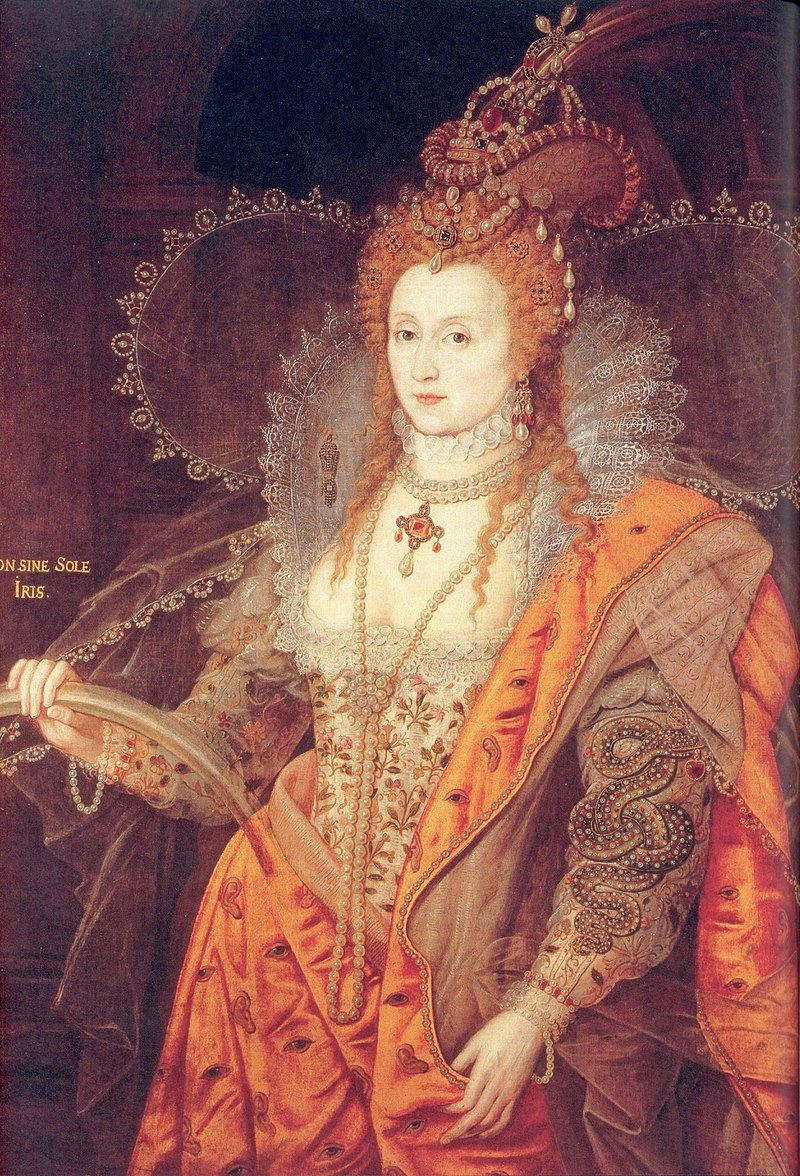Elizabeth I was Queen of England and Ireland from 17 November 1558 until her death on 24 March 1603. Sometimes called The Virgin Queen, Gloriana or Good Queen Bess, Elizabeth was the last of the five monarchs of the House of Tudor.
In government, Elizabeth was more moderate than her father and half-siblings had been. In religion, she was relatively tolerant and avoided systematic persecution. After the pope declared her illegitimate in 1570 several conspiracies threatened her life, all of which were defeated. She was cautious in foreign affairs, manoeuvring between the major powers of France and Spain. She only half-heartedly supported a number of ineffective, poorly resourced military campaigns . By the mid-1580s, England could no longer avoid war with Spain. England's defeat of the Spanish Armada in 1588 associated Elizabeth with one of the greatest military victories in English history.
The Queen's health remained fair until the autumn of 1602, when a series of deaths among her friends plunged her into a severe depression. In February 1603, the death of Catherine Carey, Countess of Nottingham, the niece of her cousin and close friend Lady Knollys, came as a particular blow. In March, Elizabeth fell sick and remained in a "settled and unremovable melancholy", and sat motionless on a cushion for hours on end. She died on 24 March 1603 at Richmond Palace, between two and three in the morning.
In government, Elizabeth was more moderate than her father and half-siblings had been. In religion, she was relatively tolerant and avoided systematic persecution. After the pope declared her illegitimate in 1570 several conspiracies threatened her life, all of which were defeated. She was cautious in foreign affairs, manoeuvring between the major powers of France and Spain. She only half-heartedly supported a number of ineffective, poorly resourced military campaigns . By the mid-1580s, England could no longer avoid war with Spain. England's defeat of the Spanish Armada in 1588 associated Elizabeth with one of the greatest military victories in English history.
The Queen's health remained fair until the autumn of 1602, when a series of deaths among her friends plunged her into a severe depression. In February 1603, the death of Catherine Carey, Countess of Nottingham, the niece of her cousin and close friend Lady Knollys, came as a particular blow. In March, Elizabeth fell sick and remained in a "settled and unremovable melancholy", and sat motionless on a cushion for hours on end. She died on 24 March 1603 at Richmond Palace, between two and three in the morning.

No coins matching the search term(s)
